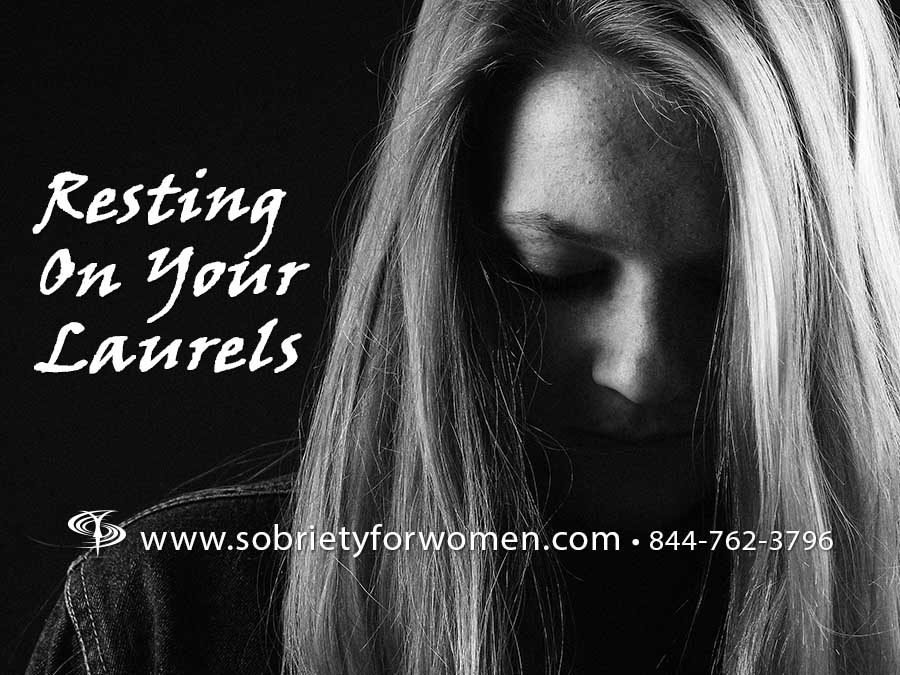What is Step Four?
Written By: Fiona Stockard
Made a Searching and Fearless Moral Inventory of Ourselves
“A business which takes no regular inventory usually goes broke. Taking commercial inventory is a fact-finding and a fact-facing process. It is an effort to discover the truth about the stock-in-trade. One object is to disclose damaged or unsalable goods, to get rid of them promptly and without regret. If the owner of the business is to be successful, he cannot fool himself about values.
We did exactly the same thing with our lives. We took stock honestly. First, we searched out the flaws in our make-up, which caused our failure. Being convinced that self, manifested in various ways, was what had defeated us, we considered its common manifestations.
Resentment is the “number one” offender. It destroys more alcoholics than anything else. From it stem all forms of spiritual disease, for we have been not only mentally and physically ill, we have been spiritually sick. When the spiritual malady is overcome, we straighten out mentally and physically.”
-A.A Big Book p.64

How Do You Do a Fourth Step?
Well, to get to the fourth step, you must have done the first three! Once we admit we have no control over alcohol, we can come to believe in a power greater than ourselves. Then, we can become willing to put our will and life (thoughts and actions) into that Higher Power’s hands. Then, and only then, are we ready to do Step Four.
There are a million ways to work a fourth step. Each sponsor does it differently. The important part is that we follow some basic guidelines.
First, there are three sections of the a fourth step: resentments, fears, and a sexual inventory. While thinking about and writing each section, we need to always to 100% truthful. That’s the hard part! It’s scary to write everything on a piece of paper. It’s even scarier to think about sharing this with another woman! It’s also necessary to overcome alcoholism and addiction.
What Does a Fourth Step Look Like?
For the resentments section, we
- List all the people, places, or principles we have resentments towards (I’m resentful at…)
- List the cause of our resentment (what happened?, why am I resentful?)
- List how we were hurt or threatened in the following categories: self-esteem, pride, emotional security, finances, ambitions, personal relations, and sexual relations
- List how we played a part, using: selfishness, dishonesty, self-seeking, fear, and inconsideration
- List the exact and specific nature of our wrongs for each resentment
For the fears section, we
- List the people, places, and principals that we fear
- List why we are afraid
- List the parts of our lives which have failed us and resulted in our fears. We use the following categories: self-reliance, self-confidence, self-discipline, and self-will
- List the parts of ourselves that specific fears are affecting. We use the following categories: self-esteem, pride, emotional security, finical, ambitions, personal relations, and sexual relations
- Pray and begin to have faith in a Higher Power. We then pray for our Higher Power to help remove these fears
For the sexual inventory, we
- List all the people who we’ve had sexual and romantic relationships with
- List what happened and what we did
- List the exact nature of our wrongs, faults, mistakes, defects, and shortcomings. We use the following questions: Was I selfish? Was I dishonest? Was I inconsiderate? Was I self-seeking? Was this relationship selfish?
- List who exactly was harmed
- List what we should have done differently
What’s the Point of Step Four?
The Big Book says, “Resentment is the number one offender.” Through working a Fourth Step, we’re able to begin to let go of resentments. Now, losing resentments is a lifelong process, but a thorough fourth step is a great way to start!
Through working a fourth step, we’re able to examine ourselves objectively and honestly (with the help of our sponsor, of course!). We learn the roles we’ve played in our resentments, fears, and sexual conduct. Once we know where we’ve been wrong, we seek spiritual strength and a spiritual solution.
Does it work?
By discovering our emotional conflicts, dependences, displacements, disturbances, scars, complications, appeals, disorders, binges, balances, and insecurities, we’re able to fix them and change. Through change, we’re able to fully connect with a power greater than ourselves and grow in its likeness. Without willingness, courage, and honesty there’s little success for alcoholics like us.
Without Step Four, sobriety is impossible. We may remain dry from booze for periods of time, but we’re unable to live a happy and meaningful life. So, get off your a*s and start writing!


